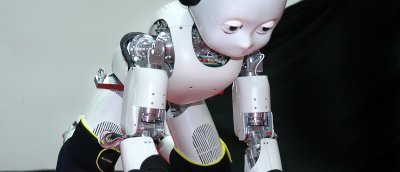GOAL-Robots: Goal-based Open-ended Autonomous Learning Robots

Project
This project aims to develop a new paradigm for learning robots called "Goal-based Open-ended Autonomous Learning" (GOAL), which enables robots to independently learn new skills in an open, lifelong learning process.
GOAL is based on two key insights. First, in order to implement an autonomous, open learning process, robots should be able to independently define their learning goals and practice the skills necessary to achieve these goals. Second, new learning algorithms can use self-generated goals to dramatically accelerate the learning of skills. The new paradigm will enable robots to acquire a wide repertoire of skills on their own. These can then be used later to solve new user-defined tasks that were not yet foreseeable at the design time of the robot. This approach could be very useful for the development of future service robots.
The project will develop the GOAL paradigm by pursuing three main objectives: (1) a better understanding of how children autonomously define learning objectives and learn skills; (2) the development of innovative computing architectures and algorithms that support the self-generation of useful objectives based on user and task independent mechanisms such as intrinsic motivations and the use of such objectives to efficiently and autonomously build large repertoires of skills; (3) the demonstration of the potential of the GOAL approach with a series of increasingly sophisticated demonstrators in which robots independently develop complex skills and use them to solve difficult tasks.
The interdisciplinary project consortium consists of leading international robotics, cognitive scientists and developmental psychologists who work with complementary approaches. This will enable the project to improve our understanding of open, lifelong learning and to achieve a breakthrough in the field of autonomous robotics by creating robots that can autonomously learn new skills and knowledge.
For further information see the project website:
Project WebsiteProject Coordination FIAS
Cooperation Partners
• Consiglio Nazionale delle Ricerche (CNR), Koordinator
• Université Paris Descartes (UPD)
• Technische Universität Darmstadt (TUDa)
